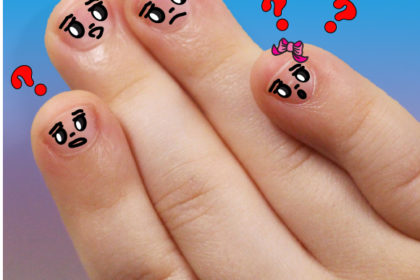5 year-old sucks fingers

Q: I am about to begin Unplugging the Thumb sucking elimination program with a 5-year-old boy who sucks his fingers and very much wants to quit. He actually sucks the index and middle one. When I first started working with him on articulation last year, I offered to help with the sucking habit (I work with him through a school job, not privately). I told his mom I had experience with it but she opted to try something else: the bad-tasting nail polish. It helped temporarily but then this summer its usefulness has lessened. He began to put up with the bad taste until it went away and now has overridden his dislike of the taste. He told his mom that sucking his fingers is “irresistible”. Yet, he does want to stop, he says. When mom showed me a strange contraption (online) that goes over the fingers to prevent sucking but still allows use of the fingers (and it was pretty expensive), I offered my help again. I know that the difference between this and Unplugging the Thumb is that with your program, he takes ownership of not sucking and uses sockie as a reminder. We are going to give your program (UTT) a try beginning next week. His mom had a question for me: what if he slips his fingers into his mouth right before she puts the sock over his hand before bed? Would he still receive a sticker the next morning?
A: That is a very odd question and could not have come out of nowhere. I have no pat reply, but rather have a lot of questions to probe with regard to that question. Why would she even think of something like that? I hope she isn’t a parent who won’t let the child take charge as much as possible….Why would he do that if HE is the one who decided to quit? You want everything to be positive with Unplugging the Thumb (UTT) and might even have to tweak something to ensure everyone remains positive. If that odd situation occurred that he wanted one last “suck” before putting Sockie on, it should be turned into something positive such as “Oh, now that you are not a thumb sucker anymore, just give Sockie a big hug and kiss. It will make Sockie so proud of himself to be able to help you!” It’s too bad they tried the other methods and experienced “failure” as that is always a barrier when trying to excite him about UTT and convincing him that he will succeed in his goals. You’ll have to be really on the ball about everything and thinking ahead when you present it due to his past negative experiences with other methods.
If he is merely doing it for the sticker, something was missed along the way. The sticker is just to keep track of the ten days in a row and if he messes up he can start over and work for ten days. (notice I said “can” start over rather than “must” as it isn’t something we adults are doing “at” him but rather we are simply his helpers since HE decided to do it and HE took charge. Any rewards should be that we are happy for him rather than merely rewarding him. I hope this makes sense. It’s all in the attitude of the parent as well as us therapist.
Q: Do you think he is too young to do this yet?
A: If he is a typical child in most ways, he should be able to do it. It all depends upon if he wants to do it and if every adult is careful not to make it their issue at all. Let him reach out if he needs help or let him ask the adult to remind him to prepare for bed with Sockie, to place a sticker, etc. The adult should not be doing everything but let him lead the way if it is to be successful
I haven’t had this particular situation, but I have seen kids who have been through everything on the market and failed at all of them…and had them tell me why every other attempt failed or hurt their thumb/fingers, etc. The other methods were about “doing at” them rather than assisting them as needed as they took charge. I hope this helps and I wish you much success. I have had parents that were unable to follow my directives and I refused (of course in a nice manner) to work with them as I knew the parent was making it personal and was unable at that time to follow the child’s lead. Before providing the program, be sure everyone knows their roles and that the child believes he will succeed. Otherwise, tell him to wait until he is very sure and then he’ll be a great success. Leave it open in the ways suggested in UTT.
